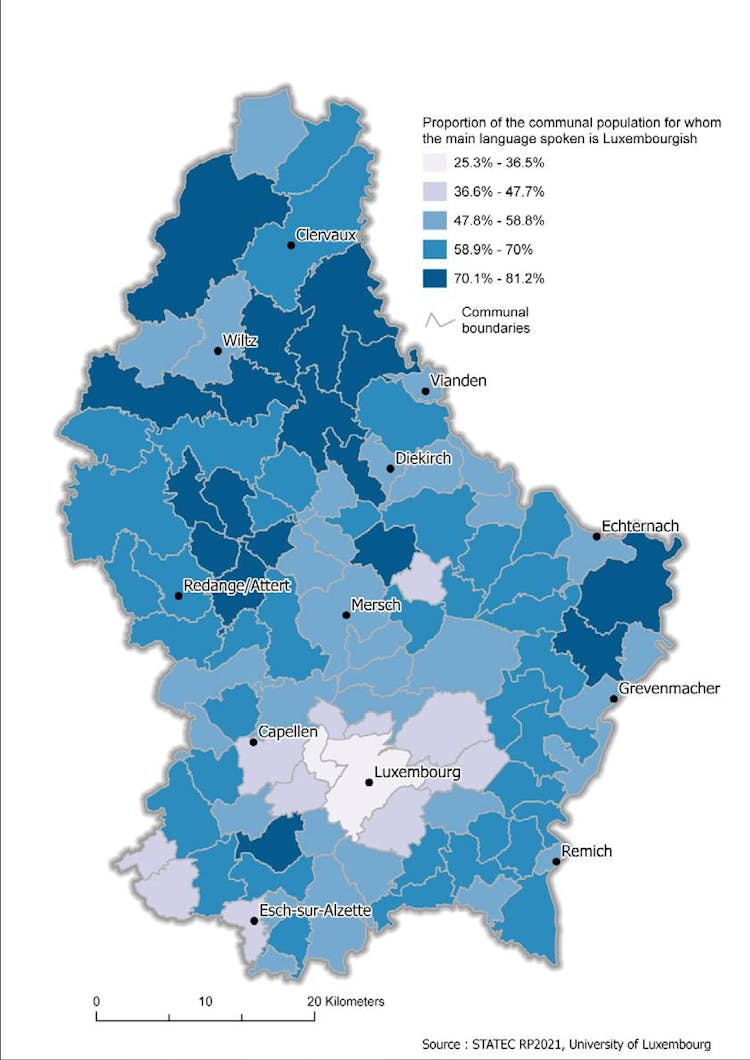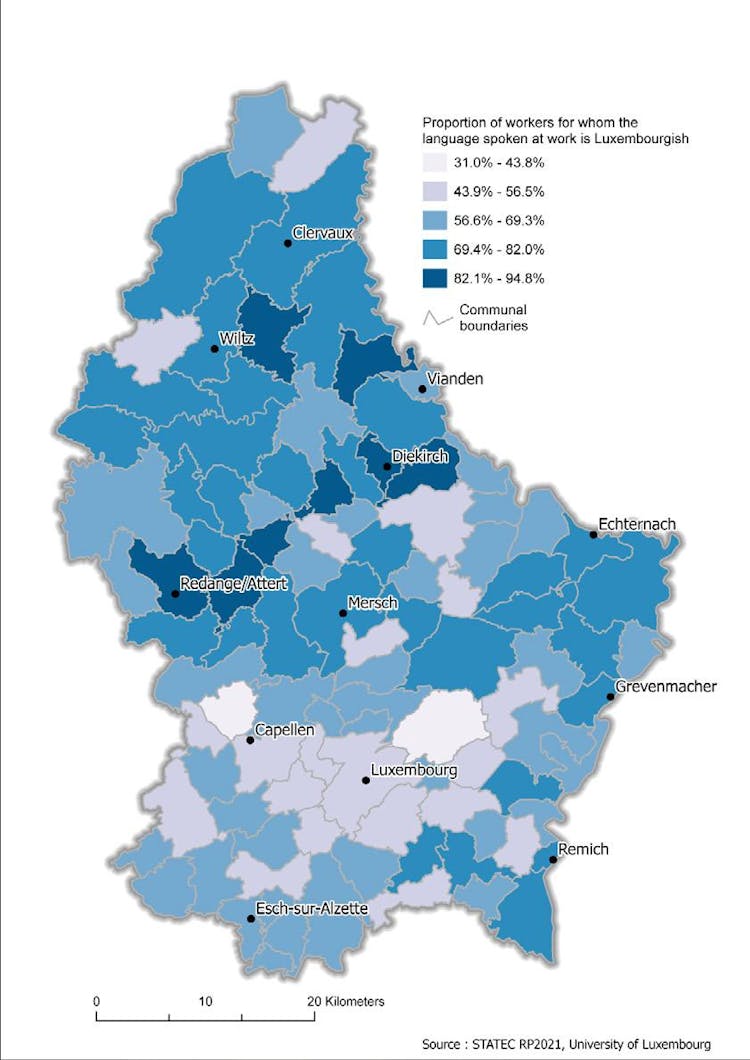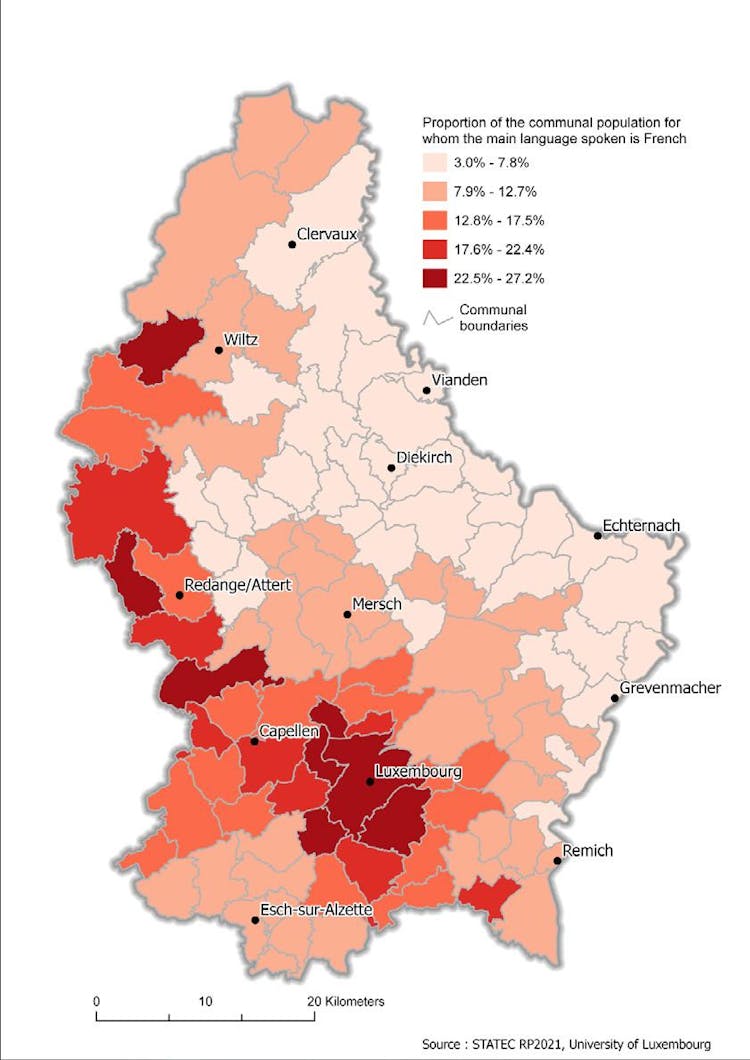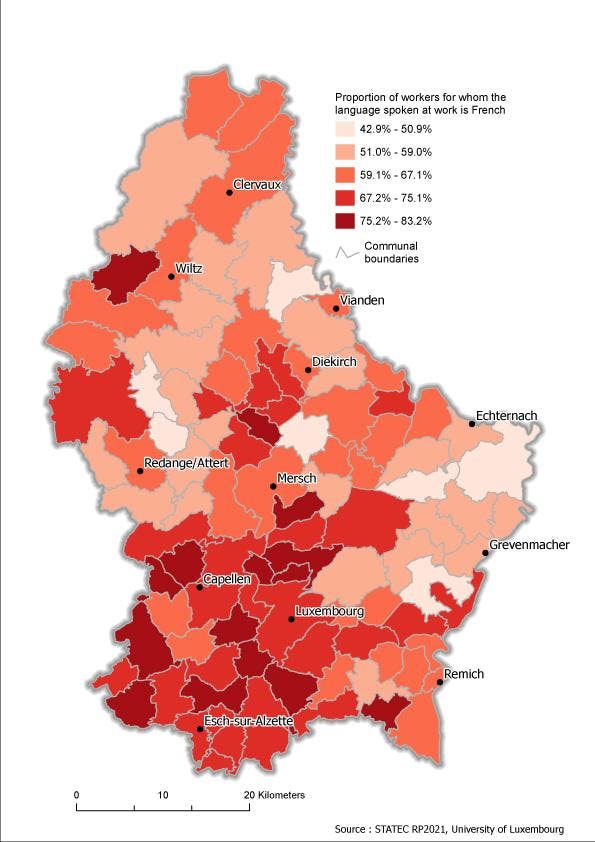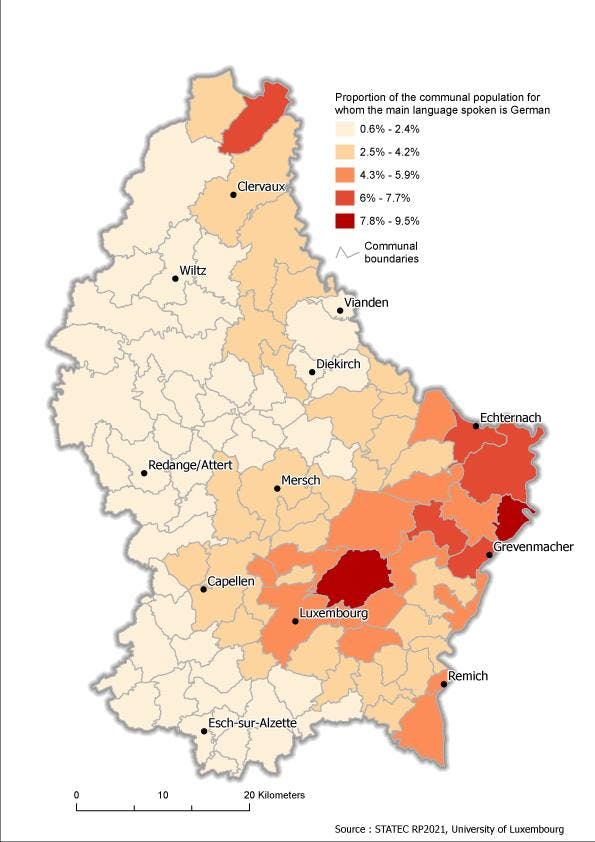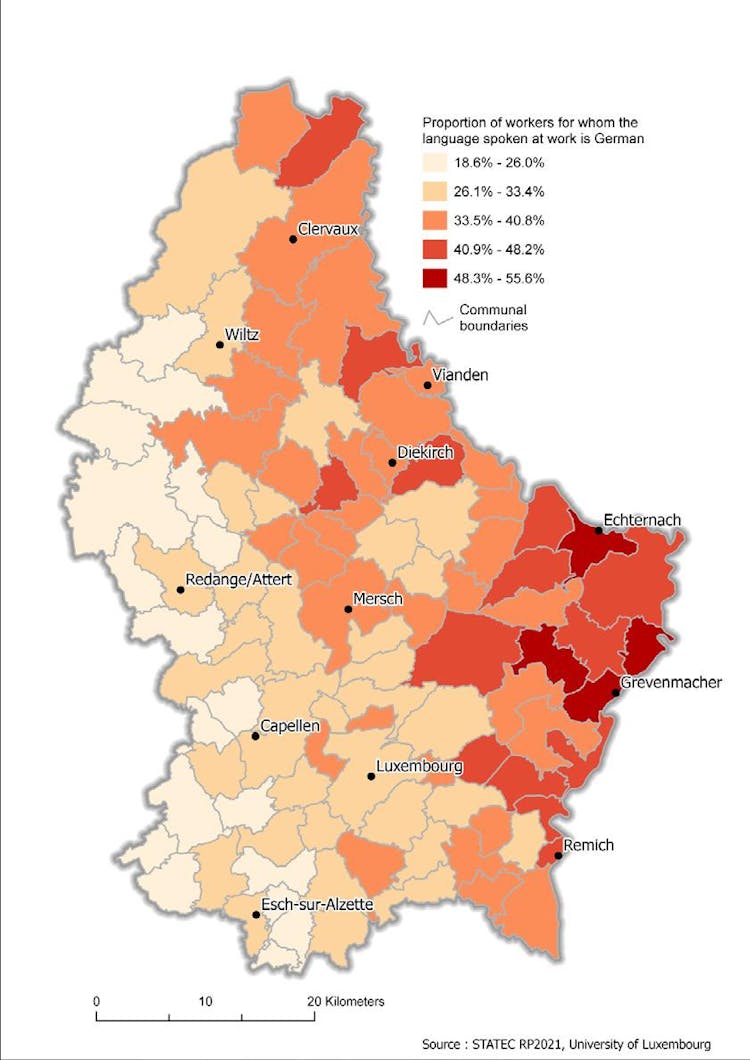
What language do they speak in Luxembourg?
Luxembourg has three official languages and trilingual status reflects the country's history and its commitment to diversity.
Luxembourg often stands out as an exemplar of how diverse languages can peacefully coexist and thrive. Unlike many other multilingual nations, such as Switzerland or Belgium, where large populations of monolingual speakers reside in isolated settlements, and the country proudly defies this norm. The three official languages are integrated into the educational system and official documents, coexisting uniquely in society, making it a truly trilingual country.
Have you ever wondered what languages are spoken in Luxembourg? If you're thinking exclusively of Luxembourgish, you might be surprised. This small nation boasts a rich multicultural history and an exceptional population mix, with nearly 50% of residents being foreigners. In the Grand Duchy of Luxembourg, the majority of Luxembourgers are proficient in four languages: Luxembourgish, French, German, and English, the latter being taught from an early age in schools as a second language.
This linguistic tapestry reflects the country's dynamic past. Throughout its extensive history, Luxembourg has undergone various linguistic influences from European powers that occupied and governed the region. Over the eras, the spoken languages in the country have evolved, and each period of influence has contributed to the mosaic of linguistic diversity characterizing Luxembourg.
Languages spoken in Luxembourg: statistics
We will start by analyzing some statistics to better understand the linguistic landscape of Luxembourg, for this purpose, we will look at a study carried out in 2021 by the State Department of Statistics.
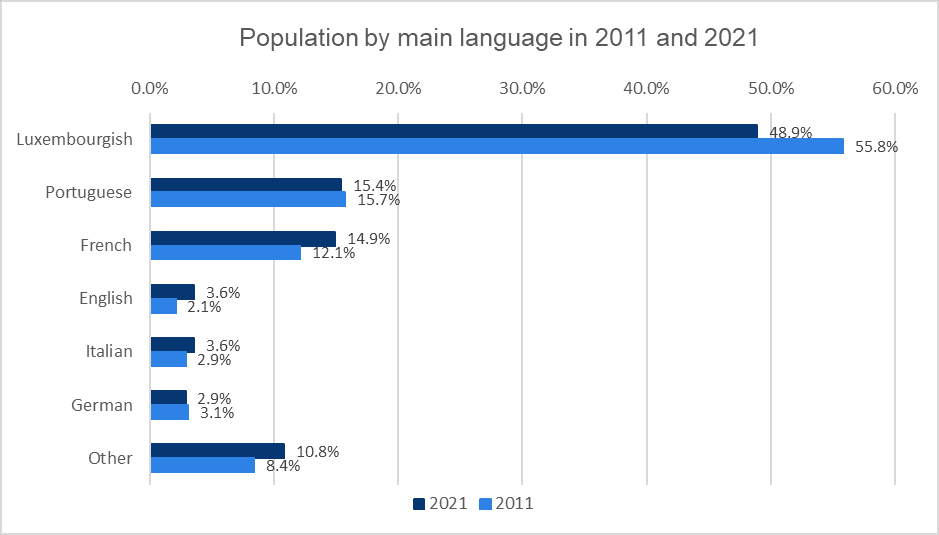
A revealing initial graph showcases the primary languages spoken in the nation along with the percentage of the population proficient in each. Luxembourgish stands out as the predominant language, followed by Portuguese, surpassing French, English, and Italian by a considerable margin, with German trailing behind. However, this graph also illustrates the evolution since 2011, indicating a relative decrease in the presence of Luxembourgish from 55.8% to 48.9% over the past decade. The percentages for Portuguese and Italian have also slightly declined, while the prominence of French and English as primary languages has increased.
Another noteworthy statistic explores the usage of languages in Luxembourg in different contexts, specifically at home and in the workplace or school.
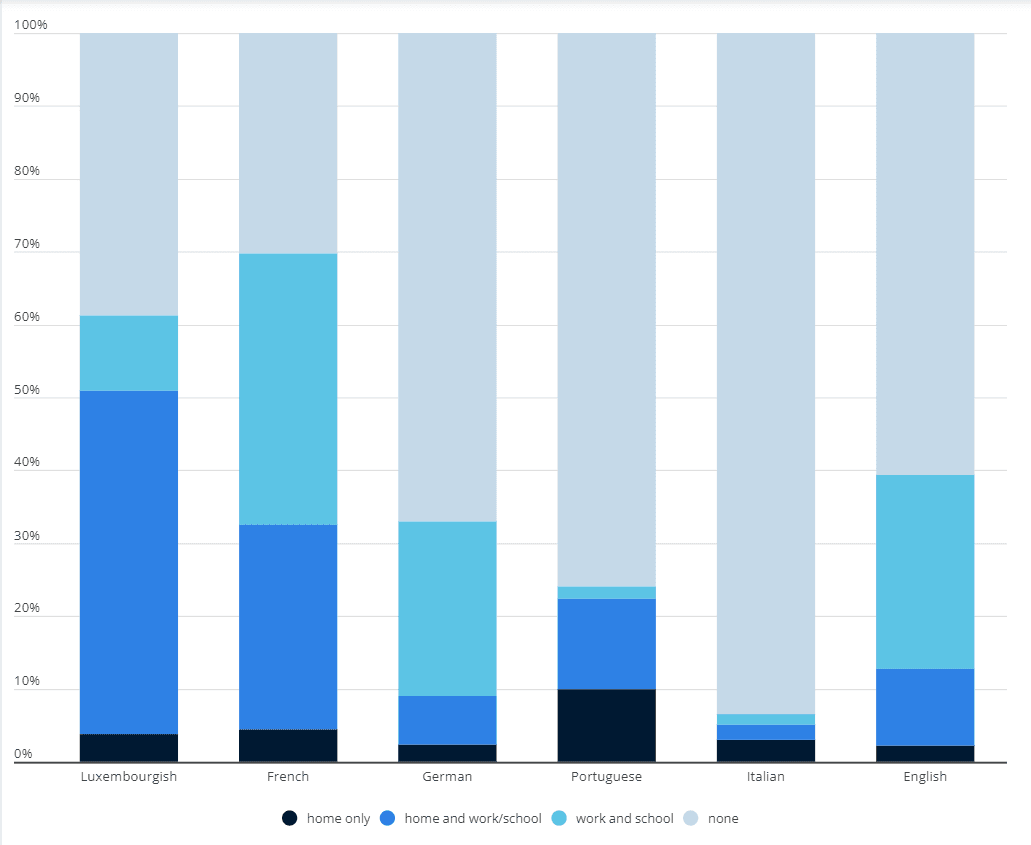
Luxembourgish dominates at home and at work
Nearly half of the surveyed individuals communicate in Luxembourgish in both settings. In contrast, French exhibits a different pattern, with 37% exclusively using it at school or work, 28% using it in both contexts and 30% not using it in either context.
Language use based on geographic location
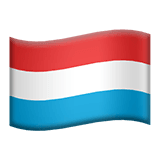

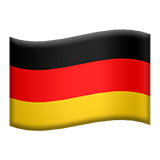

Read the reviews
Luxembourgish – a national language of Luxembourg
Luxembourgish is now the main language for 275,361 people in Luxembourg and as we've seen, is one of the official languages of Luxembourg, but it hasn't always held that status.
Luxembourg has undergone frequent transitions between German and French dominance, fell under Dutch control for a period, and was subsequently divided into parts, with a portion of the territory coming under Belgian rule. It only achieved full independence in 1890, but this independence was short-lived as the country was reoccupied and annexed by Germany during the World Wars. Due to this tumultuous history, Luxembourg's official languages were initially standard German and French.
Status of national language
Luxembourgish didn't become a national language until 1984 when the Language Regime Law granted national language status to Luxembourgish, originally derived from a Franconian-Moselle dialect. Since then, French, German, and Luxembourgish have been the administrative and judicial languages of Luxembourg.
Now, a question arises: with this mix of languages, what role does Luxembourgish play, and in what areas is it most utilized? Luxembourgish plays an important role in the following areas.
Luxembourgish takes center stage in the private sphere, with 50.9% of respondents, according to the 2021 statistics department study, indicating its use at home. This surpasses French (32.6%) and Portuguese (22.4%).
In the capital and surrounding areas, Luxembourgish serves as the primary communication language for only 30% to 52% of the population. However, its prevalence is much higher in other regions, ranging from 62% to 95%.
Luxembourgish dominates local radio stations and television channels, although programs in other languages exist. For example, L'Essentiel radio station broadcasts in French, and ARA City Radio airs programs in Italian, English, Portuguese, etc.
Luxembourgish is the spoken language in the political scene, with French predominantly used in written communication and govermental and documents affairs.
What is Luxembourg's political life like?
Explore the world of country's political arena, electoral process and learn, how the goverment works with our Political Guide. Xavier Bettel found it useful, maybe you will too.
In various aspects of life, the use of Luxembourgish aligns with the trends in language use as the primary language, with some nuances. Additionally, there are situations where Luxembourgish is particularly useful or even indispensable.
Read interview
To conclude, here's a table with some Luxembourgish words and expressions to provide you with a glimpse of the language.
| Luxembourgish | English | German |
| Moien | Hello | Hallo |
| Wéi hesch du? | What’s your name? | Wie heißt du? |
| Ech sinn … | I am … | Ich bin … |
| Wéi geet et? | How are you? | Wie geht es (dir)? |
| Mir geet et gutt/schlecht | I’m doing well/bad | Mir geht es gut/schlecht |
| Wann ech gelift | Please | Bitte |
| Merci | Thank you | Danke |
| Pardon | Excuse me | Entschuldigung |
| Zum Wohl! | Cheers! | Prost! |
| Ech hun dech gär | I love you | Ich liebe dich |
| Lëtzebuerg | Luxembourg | Luxemburg |
| Äddi | Bye | Tschüss (Ade) |
How to learn Luxembourgish?
Learning Luxembourgish can be a challenging endeavor due to its complexity. However, there are various ways to enhance your linguistic skills when it comes to national languages.
- Immerse yourself in audio and video content such as radio or TV programs, podcasts, movies, or YouTube videos.
- Take your learning a step further by enrolling in both in-person and online courses.
- If you're keen on learning this language and want to explore available options, we recommend checking out our dedicated article on this topic.
French – administration's language in Luxembourg
French is also one of Luxembourg's official languages and one of the most widely spoken languages in the country, with approximately 83,802 people using it as their primary language, representing 14.9% of the population.
Geographically, the use of French as the main language is quite consistent, concentrating in municipalities around the capital and in the southern and western peripheries. In areas of life strongly influenced by French, we observe the following.
Across various communes in the country, the use of French as the primary language never falls below 43%, reaching as high as 79%. This underscores the general observation that French is the most important language in the workplace.
A significant number of retail employees speak French; however, Luxembourgish and German are also commonly used.
According to the 1984 language law, "French, German, or Luxembourgish may be used" in administrative and judicial matters. This means citizens have the option to submit their administrative requests in one of these three languages, with the administration required to respond in the chosen language "to the extent possible." However, legislative acts are drafted in French, and as a crucial legal consequence, "the French language is authentic" at all levels of public administration.
German – localy prevalent language
While not as prevalent as the previously mentioned languages, German is also an important language in Luxembourg spoken by a significant portion of the population.
Approximately 16,412 people use German as their primary language, constituting 2.9% of the population. Geographically, German is more commonly spoken towards the east, which is naturally expected.
German's notable presence is particularly evident in the media, where it has traditionally been the language of choice in the written press. Although the use of French has increased in traditional newspapers and some weeklies, articles in Luxembourgish remain the exception. In recent years, there has been a rise in publications in English, reflecting the linguistic diversity within the country.
Portuguese – a popular language in Luxembourg
The 86,598 Portuguese speakers, constituting 15.4% of the population, make Portuguese the second most-spoken language as the primary language after Luxembourgish, despite not being an official language. This prominence is attributed to significant Portuguese immigration to Luxembourg.
Many Portuguese citizens left their country during a period of economic crisis, seeking employment opportunities in prosperous Luxembourg. Prior to the Carnation Revolution in April 1974, Portugal, led by Marcelo Caetano, the successor to autocrat Salazar, actively encouraged emigration to address economic challenges. Luxembourg warmly welcomed these workers, particularly in the construction sector, where they played a vital role in the country's economic development.
1 in 5 residents
It's a little-known fact that one in five residents in Luxembourg is of Portuguese origin, likely the highest proportion globally relative to the native population.
Frequently Asked Questions (FAQ)
What is the official language of Luxembourg?
Luxembourg has three official languages: Luxembourgish, French, and German. This trilingual status reflects the country's historical influences and its commitment to linguistic diversity in official communication and education.
How did Luxembourg become a multilingual country?
Luxembourg's multilingualism stems from its historical interactions with various European powers, leading to the adoption of French, German, and Luxembourgish. Strategic geopolitical positioning and cultural exchanges have shaped Luxembourg's linguistic landscape.
Is Luxembourgish taught in schools?
Yes, Luxembourgish is a fundamental part of the education system. Alongside French, German, and often English, Luxembourgish is taught in schools to ensure students are proficient in the country's official languages.
Why is Portuguese spoken by a significant portion of the population in Luxembourg?
Economic opportunities and an open-armed reception drew a substantial number of Portuguese immigrants to Luxembourg. Their contribution, particularly in sectors like construction, has resulted in Portuguese becoming a significant language in the Luxembourgish social fabric.
Source: luxembourg.public.lu, statistiques.public.lu, statistiques.public.lu, www.babbel.com, www.expat.com, fr.wikipedia.org
We took photos from these sources: Photo by Etienne Boulanger on Unsplash
